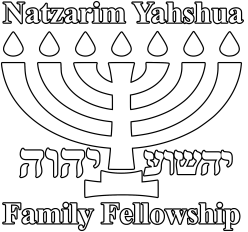By: Michael McLeod
Date: November 3, 2018
Acts 10 tells us of the Apostle Peter experiencing the vision of the sheet with unclean animals coming down out of heaven. It speaks in a wonderfully blunt manner about how our Father accepts unclean Gentiles (Goyim) who repent into His family and nullifies the Jewish exclusion of Gentiles from the covenant. Yahovah our creator desires a relationship with all mankind. However, some sermonizers add a secret revelation to this vision. This “part B” is actually asserted much more than part A, and obscures the purpose of the vision altogether. It purports to explain the vision’s purpose is to say “We New Testament believers have the freedom to eat any unclean food we want.” If we take a closer look at Peter’s comments explaining the vision we find that a misrepresentation exists in this theory; one that promotes a serious misunderstanding about our walk, and displaces the whole intent of the vision:
“And he said unto them, Ye know how that it is an unlawful thing for a man that is a Jew to keep company, or come unto one of another nation; but God hath showed me that I should not call any man common or unclean.” -Acts 10:28
Notice it says that “it is unlawful…” for a Jew to keep company with non-Jews. He called it un”law”ful. What law is he referring to? This important in many of Paul’s writings as well. There are no such commands regarding Gentiles in God’s law. This “unlawful”-ness was only a Rabbinic tradition and not spoken of at all in the Mosaic Law. Reading the passage again, Is Peter interpreting this as addressing food, or another problem? See him state it once more in vs.34-35:
“Then Peter opened his mouth, and said, Of a truth I perceive that God is not respecter of persons; But in every nation he that feareth Him, and worketh righteousness, is accepted with him.” -Acts 10:34-35
Does Peter interpret it as “Hey guys, I have a new revelation about food!” or is it the very same revelation they had all along: that Gentiles are also invited into a relationship with Yahovah God? Isn’t the idea here that the Father welcomes the gentiles into a covenant relationship, and that the Church, the Jewish believers at the time, should welcome them too? The Jewish oral law taught that Gentiles could not be saved apart from becoming a Jew, and that Jews could not fellowship at the table or otherwise with Gentiles (1). The great commission states, “…And that repentance and remission of sins should be preached in His name among all nations, beginning at Jerusalem.” (Luke 24:47). (See also: Numbers 15:29. Isaiah 66:17-24, Zechariah 14, the book of Ruth, Matthew 28:19-20, Isaiah 56:2-7, Mark 16:15, Acts 1:8 and many others that tell of the invitation for Gentiles to join God’s people, Israel, into the Kingdom).
Well then, how do the listeners back in Jerusalem interpret what Peter explains?
“When they heard these things they fell silent. And they glorified God, saying, “Then to the Gentiles also God has granted repentance that leads to life.” (Acts 11:18).
Is there any reference to food at all in the interpretation? Do they either gasp in disgust or celebrate the surprise of how they are now able to BBQ shrimp scampy or a ham for Passover celebrations? They do neither and make no mention at all of any new rules for eating. The official interpretation is given three times and does not mention food even once. If we read this passage carefully without inserting our own ideas into it, can we really conclude that it is expounding on dietary concerns, or di the listeners interpret that Gentiles are granted repentance just like the Jews? The real problem being addressed is the Jewish tradition which gets in the way of the Father’s plans to invite all to salvation.
References
1. The Jewish culture rejected Gentiles from access to Yahovah. Any fellowship was like
consorting with the enemy. The Talmud and early rabbinic writings viewed it necessary for Gentiles to change their ethnicity by undergoing “Milah l’Shem” Gentile conversion. The Midrash states, “If thy sons accept My Godhead [by undergoing circumcision] I shall be their God and bring them into the land; but if they do not observe my covenant in reguard either to circumcision or to the Sabbath, they shall not enter the land of promise” (Midrash Genesis Rabbah xlvi). “The Sabbath-keepers who are not circumcised are intruders, and deserve punishment,” Jewish philosopher Philo (20 BC-AD 50) gives six reasons for the practice of circumcision. Of the special laws. Book I (i and ii), in Works of Philo. Vol VII. pp. 103-105. Also Arakin 19b, berakoth 25b, Niddah 45a, Shabbath 150a, Yebamoth 98a. States that the Jewish man is obligated to say the following prayer every day: “Thank you God for not making me a gentile, a woman, or a slave.”
